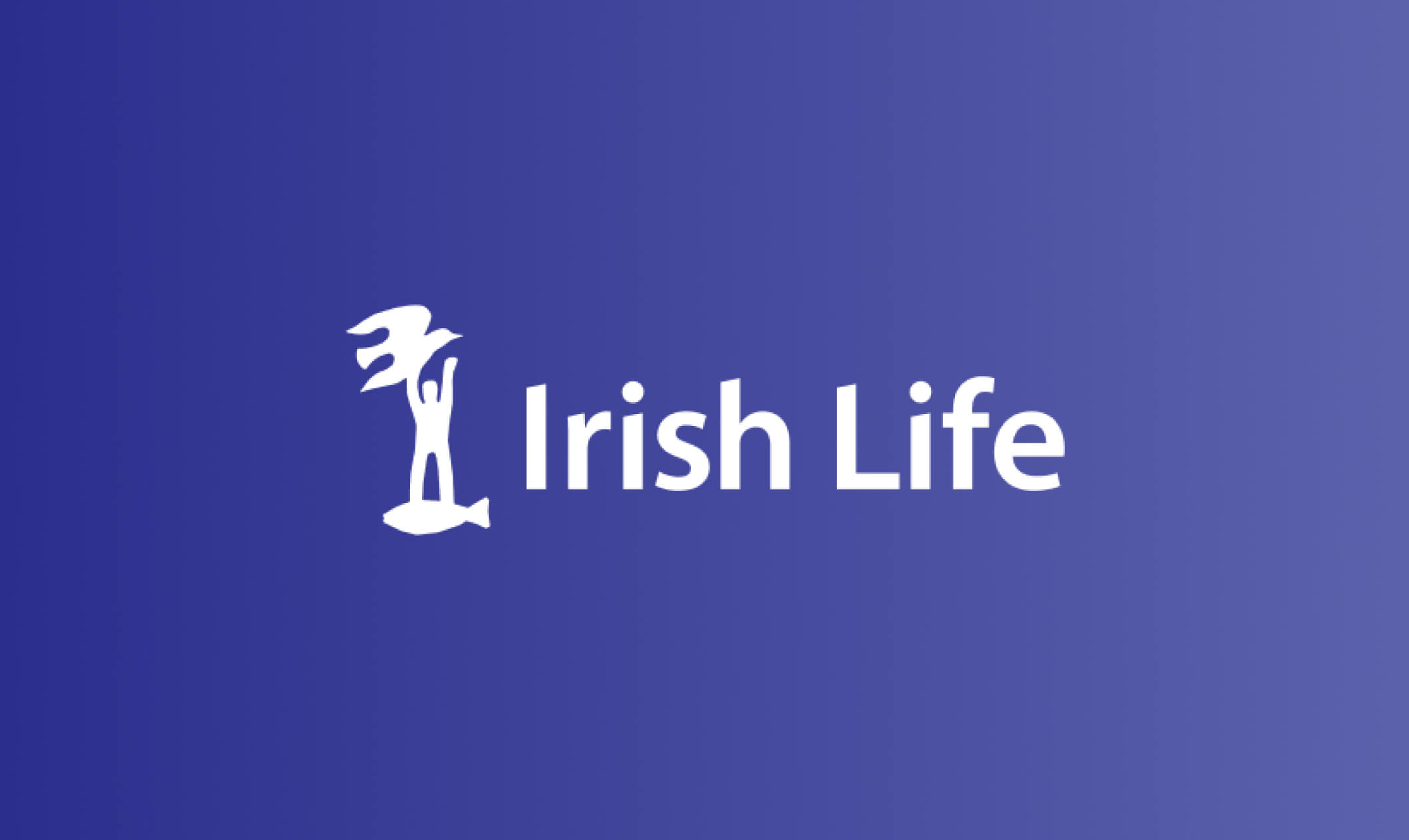If you want to refine your pension strategy to better plan for retirement, our advisors are here to help. No matter what stage of the pension journey you're at, book a free consultation via phone or in person.
What You Need to Know About the State Pension in Ireland

by Irish Life Financial Services
Written by Irish Life staff
Guides • 01 July 2025 • 4 min read

You will learn
How the state pension works in Ireland
Who is entitled to the Irish state pension
How to maximise your retirement savings
The state pension and you
When it comes to retirement, everybody has different dreams. Some people might want to use their extra time to pursue their hobbies or start new ones; others may want to travel the world; others might simply want to put their feet up and enjoy their newfound freedom.
No matter your retirement plans, chances are the state pension factors into them – even if you have your own personal pension – and especially if you don’t.
“The State Pension is one of the core pillars of retirement planning for workers in Ireland,” says Aaron Gaynor, Head of Decumulation in Advice Solutions at Irish Life and Vice-President of the Irish Institute of Pensions Management.
“Because the vast majority of people working will qualify for some level of state pension, I would encourage anyone who is close to retirement to look into their entitlements so that they have a clear idea of what they are eligible for and how much they are entitled to per week.”

Do you know your retirement income goals?
Calculating your pension & retirement income
Even if you’re a way away from retirement, you may still think about your future.
Perhaps you have a few questions like how much money do I need to save for retirement? Is it too soon to start a pension? Am I entitled to a state pension?
The earlier you start a pension, the easier it could be to build up your fund which will allow you enjoy a comfortable retirement. Our pension calculator will help you understand if you're on track to reach your savings goal to achieve the future you want.
What is a state pension?
The state pension is a weekly payment that the government provides to eligible individuals aged 66 or older. It’s intended to provide a basic level of income to help cover living expenses once you've retired.
The number of Pay-Related Social Insurance (PRSI) contributions you have made is the main determining factor for state pension eligibility.
As of 2025, you need 520 full-rate PRSI contributions to qualify for the state pension[1]. Each week of taxable work is considered one PRSI contribution, so 520 contributions is 10 years of work.

The state pension is changing.
The future of the state pension
The state pension is in the process of transferring to a total contribution amount model where the PRSI contributions over the course of someone’s career will be used to calculate their entitlements.
You will need 2,080 PRSI contributions to qualify for the full state pension entitlement - though there are allowances for those who took time off work for working parents and long-term carers. The state pension will have fully transitioned to this model by 2034.
Contributory vs non-contributory state pension
There are two types of state pension in Ireland:
- State Pension (Contributory), payable to those who have paid the required number and type of PRSI contributions. We will refer to this as simply “the state pension” here, as it is the most common.
- State Pension (Non-Contributory), payable to those who do not meet the required PRSI conditions and satisfy a means test.
The State Pension (Non-Contributory) is in place for those who may not have enough PRSI contributions to qualify for the state pension.
The State Pension (Contributory) is typically what people mean when they talk about the state pension.

Even if your retirement is decades away, you should plan for it.
How much is the state pension in Ireland?
From January 2025, the state pension in Ireland will provide a maximum of €289.30 per week. This works out at approximately €15,100 a year or €41.30 per day. The State Pension (Non-Contributory) will provide a maximum of €278 per week.
Retirement planning questions to ask yourself
What are my pension entitlements?
Am I entitled to any other benefits?
How much might I spend in retirement?
Will the state pension be enough for me to live on?
How can I reach my target retirement income?
Is the state pension enough to live on?
A lot of workers who transition to retirement are likely to experience a drop in their income.
“A really important step in the retirement planning process for those approaching retirement is to look at what your likely expenditure will be once you stop working," Aaron advises. "Using a budget planning tool can really help with this process. For many, the state pension won’t be enough to cover your expenditure in retirement.”
When you stop working, you will have a lot more time – time to travel, time to take up new hobbies or double down on existing ones, time to do... well, anything you want!
Of course, doing things tends to cost money – will the state pension be enough for you?
"The state pension is intended to provide a basic level of income for people in retirement," Aaron says. "So for those without their own pension, this may mean a significant drop in income in retirement."
In an ideal world, by the time you retire you have little to no outstanding debt or dependents. Your mortgage will be paid off, any children will have flown the nest, and you will be in good health. That's the perfect scenario.
Unfortunately, we don't live in a perfect world. Whether you’re in the ideal situation, or especially if you're not, it’s unlikely that the state pension will be enough for you to maintain a comfortable lifestyle.

The state pension alone may not be enough.
Closing your retirement income gap
A pension with Irish Life Assurance could be the answer.
Personal pensions, also known as private pensions, are a way of saving for your retirement that could give you significant tax relief. Your contributions are invested and any investment gains you make grow tax-free.
Usually, you will be entitled to income tax relief on any personal contributions you are making, and if your employer also makes a contribution, they can claim tax relief on their contributions as well. So, you can use your pension to save up money and give yourself an income after you retire. You will have to pay tax on this income when you draw it down.
The most important thing about retirement planning
According to Aaron, it's simply "deciding to do something."
"Be that starting a pension, continuing to contribute, or even saving a little more, saving for retirement via a pension offers generous tax benefits, giving you the potential to build up a retirement pot in a tax efficient way to supplement your income when you stop working.”
According to the annual pension coverage report from the Central Statistics Office (CSO), one in three workers in Ireland doesn’t have a private pension set up[2]. If you’re one of them, it could be because you haven’t gotten around to it yet, or you feel you can’t afford it. But there are small steps you can start taking at any time.
Our expert advisors are on hand to discuss your pensions options with you, so you can feel confident that you’re doing everything you can to secure your future. Select one of the options at the bottom of this page to take the next steps.
The benefits of a private pension
“Pensions are very flexible. You can increase, decrease, or pause your contributions really easily to align with your circumstances. ”
Frequently asked questions on the state pension in Ireland
If you want to retire abroad or continue working while collecting the state pension, it’s good to know all the options available to you. Here are some of the most common questions our financial advisors receive about the state pension.
Who is entitled to the state pension in Ireland?
With pensions, it’s easy to understand the basics, but remember that everyone’s situation is unique. It’s always a good idea to speak with a professional who can guide you through your options and help you make informed decisions about the best available strategies for your retirement.
Who is entitled to the state pension in Ireland?
In Ireland, anyone over the age of 66 with enough pay-related social insurance (PRSI) contributions is entitled to receive the contributory state pension.
The amount you get depends on the number of years you contribute to the Irish social insurance system. At a minimum, you must have been employed before the age of 56 and have paid 520 full-rate PRSI contributions before you reach retirement age.
Each full-rate PRSI contribution equates to one week of eligible work, so in general if you have been employed for 10 years or more then you will be eligible for the state pension. As of 2025, to receive the maximum entitlement you must have 2,080 PRSI contributions.
What types of PRSI contributions are there in Ireland?
There are 11 different kinds of pay-related social insurance (PRSI) class in Ireland. They can be broadly divided into three categories:
- Public service workers: usually, these workers are Classes B, C, D, and H. They will typically qualify for the public service pension scheme in addition to the state pension.
- Private sector workers (and certain public servants): most of these workers fall under Classes A, E, and J. While they may be part of occupational pension schemes through their employer, many may also have their own private pensions. Click here to find out more about Personal Retirement Savings Accounts.
- Self-employed workers: if you are self-employed then you will likely be making Class S PRSI contributions. You can qualify for the state pension, but it’s worth setting up your own pension as a self-employed worker as well.
How much is the non-contributory state pension in Ireland?
Under what's called the non-contributory state pension, you can receive up to €278 a week if you’re under 80 years of age - even if you haven’t paid enough PRSI to qualify for the state pension. Aged 80 and over, it’s €276 a week. Your non-contributory state pension rate depends on the outcome of a means test.
Can I still claim the state pension if I live abroad?
Even if you have worked or lived abroad, you still may be able to claim the state pension in Ireland. Similarly, if you have worked in Ireland but you dream of retiring elsewhere, the contributory state pension can be paid into your bank account wherever you are as long as you have paid enough PRSI contributions.
With a non-contributory state pension, you must be a resident in Ireland to continue receiving it.
Can I claim a state pension and still work in Ireland?
While many of us dream of putting our feet up once we retire, some people have different needs and aspirations. If you plan on working after the age of 66, you may be glad to know that you can still claim the state pension – even if you have other income.
If you claim a non-contributory state pension, you can continue to work, however, this may impact the amount of money you receive each week as the state pension is means-tested.
Main takeaways on the state pension in Ireland
- The state pension can help you maintain a basic standard of living, and the amount you get is based on your contributions.
- A private pension helps to secure the future you want by supplementing the €289.30 per week (as of January 2025) you would get from the state pension.
The pensions landscape in Ireland is changing, and the Government plans to introduce auto-enrolment in Ireland by the end of September 2025. Figuring out your pension needs can seem daunting, and it’s not something you have to figure out alone.
Next steps: Calculate your pension
Whether you're looking for advice on AVCs or are simply curious about your options for your personal pension, our expert advisors are on hand to help. It takes as little as 15 minutes to review your needs and get straightforward financial advice on personal pensions by speaking to our advisors at a time that suits you.
[1] State Pension (Contributory) | Gov.ie - 21 August, 2024
[2] Pension Coverage Report | Central Statistics Office - February 26, 2024
What to read next
You may also like
Free consultation
Need a hand with pensions?
What happens in your appointment?

Get an evaluation of your finances

Get answers to your questions

Get a free personalised plan

Get the right recommendations
“Use 60 mins to invest in your life, it’s time well spent on your future.”

- Linda Moran
Financial Advisor Irish Life
Irish Life Financial Services Limited, trading as Irish Life, is regulated by the Central Bank of Ireland. Irish Life Financial Services is an insurance intermediary tied to Irish Life Assurance for life and pensions.